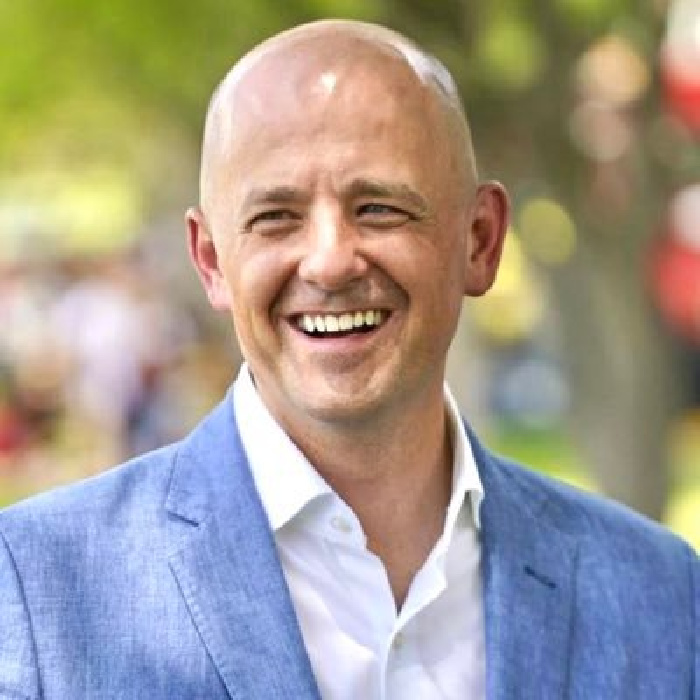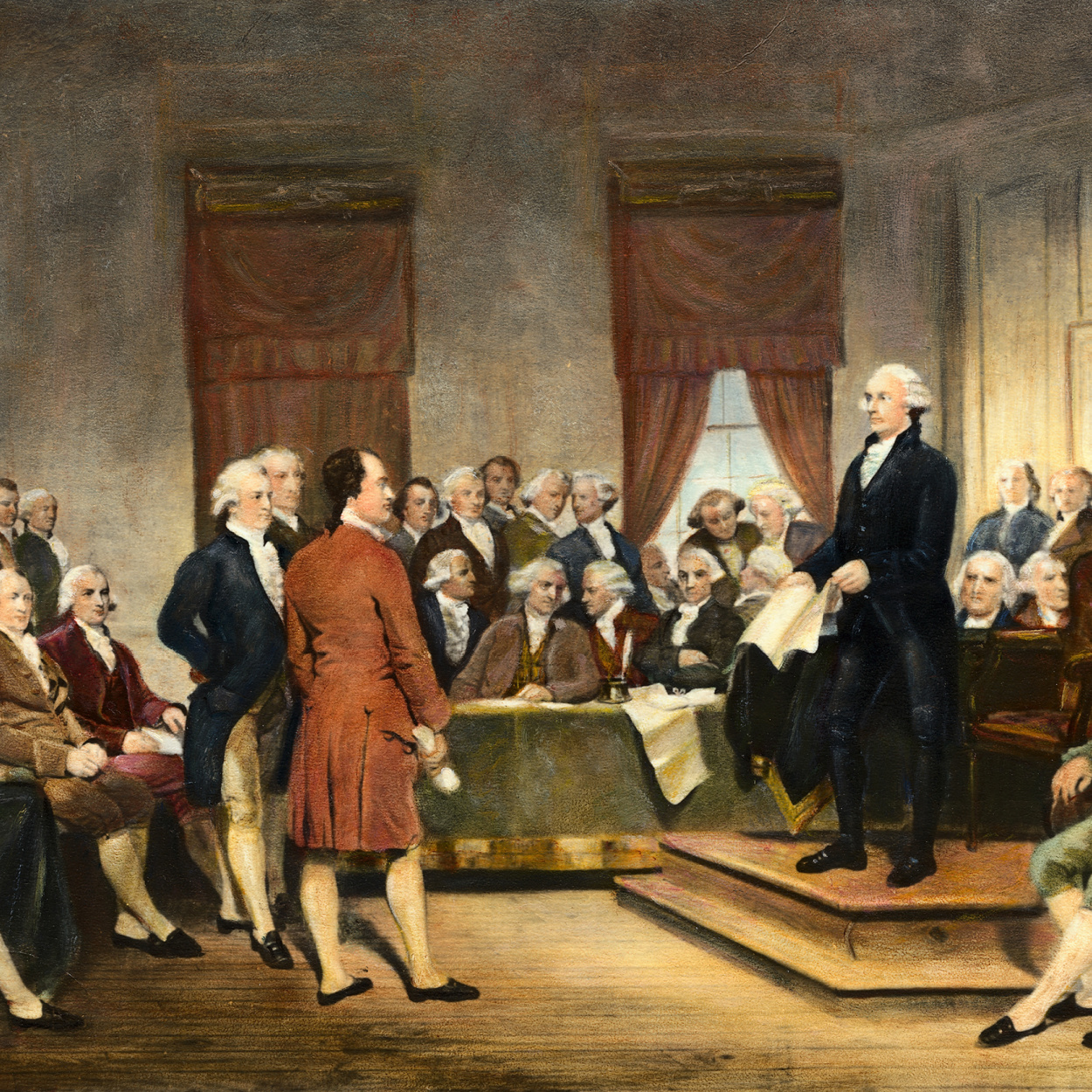In recent weeks, a bittersweet display has unfolded as the world watches Ukrainian forces liberating relieved towns. These soldiers inevitably find what everyone sadly now anticipates they will discover—mass graves and burn pits housing the last remains and charred corpses of literally thousands of precious human beings.
These bodies were discarded in heaps like the trash that some wounded souls had tragically been persuaded they were. How is that possible? What could lead a young soldier to be willing to do such vile and unforgivable things?
The ignoble call to denazify. When Vladimir Putin announced his shocking decision to launch this vicious invasion in Ukraine earlier this year, he insisted that one of the goals of the offensive was to “denazify” the country.
This rhetoric was meaningful in a country that had lost so many soldiers battling Nazis in World War II. And yet, to outside observers, the irony was painfully clear. The very country accusing leaders in Kyiv of being “abusive” and “genocidal” was destroying thousands of lives in its assault. As Timothy Snyder, a professor of history at Yale University, put it at the time, Putin appears to be “fighting a war the way that actual Nazis did” in his willingness to roll across sovereign boundaries and attack Ukraine on its own turf.
However threatened Putin and others may have felt by some elements of Ukraine’s growing embrace of the West, it’s been abundantly clear that the rhetoric around “denazification” represents little more than a pretext for invasion—a manufactured grievance designed to justify the onslaught to a Russian domestic audience. As Claudia Wallner wrote earlier this year, “The West should not fall for Russia’s pretend moral outrage and pseudo-principled stance.”
We haven’t fallen for it. No matter how passionately Russian leaders insist their “special military operation” has good aspirations behind it, the reality has always been clear: these ruthless attacks have needlessly left tens of thousands of people dead, wounded, and grieving—and for absolutely no justified reason.
Another liberation campaign. I’ve reflected recently on some parallels to this language being used to justify vicious actions overseas after witnessing a similar rhetorical pretext for an agonizing assault closer to home. Over the last decade, there has been a growing and increasingly organized anti-religious element in American society. When it comes to Latter-day Saints, that opposition has been particularly organized and potent—with a cottage industry of anti-Church voices becoming more strident and more effective at reaching a wide audience.
These assaults come from both the political left and the political right. What unites them is a conviction that faith leaders at the top are morally bankrupt—deceptive, power-hungry, and absolutely unworthy of trust. Thus, anything to dismantle and challenge their authority is game—including the promotion of “scary stories” about our people that are far from reality. As one friend put it, some of these voices “justify their brazen attacks on the Church because they think it’s evil and run by evil people (i.e., nazis), and as soon as you brand a group of people as nazis, whatever horrible attack you make on them is justifiable.”

To listen to the motives and rationales of these full-time critics, you would hear plenty of insistence that they are, in fact, passionate about “doing good.” In fact, it’s striking how often this growing legion of podcasters, influencers, and activists frame what they are doing as a similar kind of liberation of believers—confronting the leaders and institution precisely so that naïve members will be disabused of their confidence and no longer be oppressed under their collective influence.
To be clear, there are plenty of wonderful and thoughtful people with sincere questions and concerns about the Church. I’m speaking here of a subset who dedicate their lives to a relentless campaign of aggression framed up as a noble liberation effort—yes, against an institution and set of leaders despicable enough to deserve it.
Looking closer at the consequences. It is true that some who step away from a life of faith initially feel some freedom and relief. There is a kind of relief that most anyone would feel, of course, to lay aside serious obligations that ask a lot of our hearts. But as Samuel Major pointed out recently, relief is not the same as peace. And whatever initial insistence there may be about being “happier than ever,” the truth can only be seen and known long-term.
And if we take a closer look at the longer trajectory, the reality is that these “liberation” efforts over time often (not always) lead to hurting marriages and children swept away in all the currents of the day—being led towards decisions that cause heartbreak, fractured relationships, and any of the many varieties of addictive-compulsive behavior.
This doesn’t even touch on the myriad other spiritual consequences set in motion. As one wise-and-wizened brother in my ward, Gary Sorensen, said recently, “we’ve each waited thousands of years to be able to come to earth and show God that we can follow His covenant. This isn’t an invitation to a birthday party we’re talking about here. This is eternal life.”
To those leading these campaigns of faith attrition, are you aware of the full consequences of your work in the lives and homes of people you are reaching? Do you see what your efforts actually mean in the lives of these incredibly precious brothers and sisters?
We will all one day stand before God—podcasters and prophets, faithful and faithless. Before that day comes, may we all recognize the significant rippling effect our choices have not only on people around us, but on our own unending futures. As General Maximus says in Gladiator, “What we do in life echoes in eternity.”
Sadly, the rhetorical assault will undoubtedly continue against all faith communities, relentless and ruthless. And those leading this assault will surely continue to frame their attack on sacred things as a kind of glorious campaign of liberation that will surely do much good in the world.
Don’t fall for it. Heaven above and the history books below will both ultimately tell the full story of the devastation they are causing.
And if you look closely, you can see it too.

















